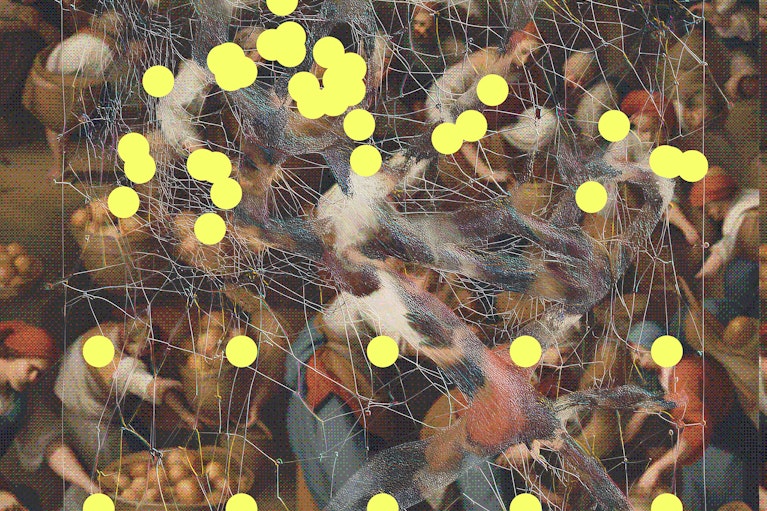Nathan Gardels is the editor-in-chief of Noema Magazine.
“To get rich is glorious,” China’s then paramount leader, Deng Xiaoping, declared at the outset of China’s “reform and opening up” in the 1980s. This was his provocative rejoinder in those days to the just-vanquished Gang of Four and others in the Cultural Revolution who had long castigated his views on rapid development as “taking the capitalist road.”
In the ensuing decades, the robust enterprise Deng unshackled was a key factor, along with massive investment in infrastructure financed by trade receipts, in raising hundreds of millions out of poverty while minting more new billionaires than even the United States. But with the top 1% now holding 31% of all wealth in the Middle Kingdom, it appears that road is coming to an end.
Last week, President Xi Jinping launched a new campaign to rein in the rich and stem social inequality which, after all, is the sine qua non of Communist ideology. In the inimical abstruseness of Party lingo, he calls this the “third distribution” (following the first distribution of wealth generated through market competition and the second through basic taxation).
The “third distribution” involves a large swath of policies and actions ranging from antitrust prosecutions to the public shaming of China’s now inglorious Big Tech icons like Alibaba’s Jack Ma to pressing the wealthiest to “pay back more to society” while placing limits on “unreasonable income” and property ownership. And all that is not to mention the enduring dominance of state-owned enterprises and the creeping reassertion of Party control in all commerce.
Following this scenario, Xi’s aim, as he puts it, is to create “common prosperity” in the form of socialist modernization by 2035.
Those who convinced themselves that “the socialist market economy with Chinese characteristics” would mimic Western-style unfettered capitalism have been imbibing the same neoliberal Kool-Aid instead of Party tea that led them to expect democracy would necessarily follow prosperity. Yet, this comes as no surprise if proper attention has been paid to the thinking of the Party leadership during China’s decades-long ascent to the top ranks of the global economy.
As Nicolas Berggruen and I wrote in our 2019 book, “Renovating Democracy: Governing in the Age of Globalization and Digital Capitalism”:
As hard as it may be for the West to grasp, it is equally important to note… that China’s leaders today take Marxist ideology seriously. They believe in what they consider the scientific laws of development of productive forces — namely, that the market is necessary to create sufficient prosperity for the wealth to be shared under the next stage of socialism. According to the materialist roadmap, social relations — and political reforms — follow “the developmental level” along this road. In their minds, this “Sinicized Marxism” justifies the present transitional stage in which a fiercely competitive marketplace exists alongside state-owned enterprises that dominate the economy — the so-called “socialist market economy with Chinese characteristics.”
I recall a conversation in Beijing back in 1988 at the height of the pre-Tiananmen reforms with Hu Qili, then the Party’s ideology chief and youngest member of the ruling Standing Committee of the Politburo.
“The market is not a feature unique to capitalism,” he told me. “Capitalism does not have the patent right over the market economy. What we are trying to create is a new and unprecedented modality where planning is combined with the commodity economy, where the state regulates the market and the market guides the enterprises.” In other words, the aim is to generate wealth through market competition within the confines of state objectives and to control how that wealth will ultimately be distributed.
In an earlier conversation with Hu in 1986 at the Forbidden City-adjacent compound of Zhongnanhai where the leadership then lived and worked, we discussed another aspect of Party intervention that has also returned all these decades later. Not unlike the authorities today under Xi who have slammed the video games that make Pony Ma’s Tencent so profitable as “spiritual opium,” Hu spoke then about instilling the “virtue” of Chinese civilization and “the patriotic and revolutionary spirit” in youth to resist the “spiritual pollution” that came along with opening up to the West.
Too often over the years, the consistent rhetoric and turgid liturgy of China’s Communist Party leaders have been regarded as hollow propaganda in the presumption that they are as cynically dismissive of their own formal ideology as the pre-Gorbachev apparatchiks of the moribund Soviet Union. Not so. Unless we learn to take it as seriously as it is meant, we will face endless surprises that the Middle Kingdom is charting a different path than our own expectations have misled us to believe.






